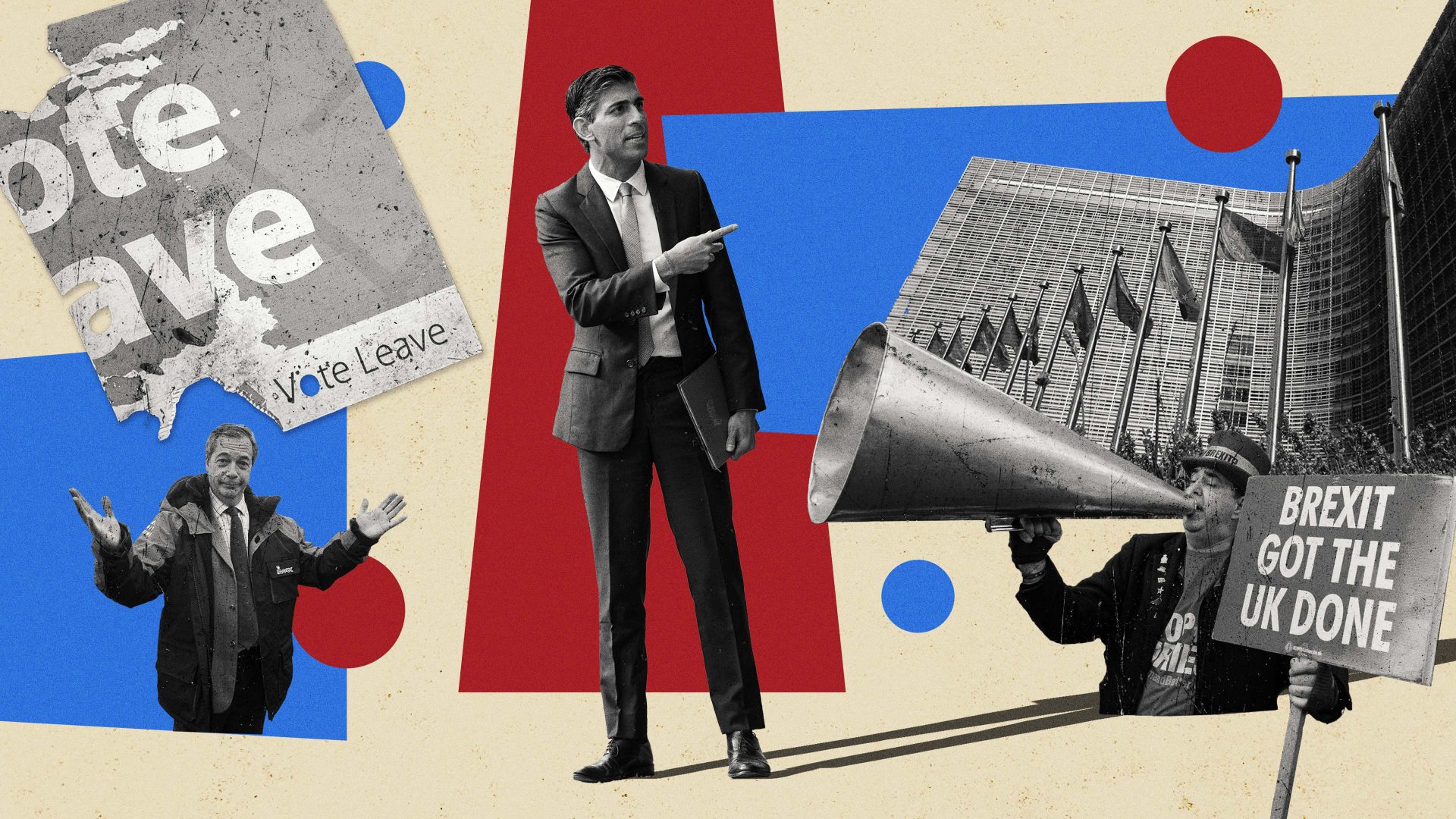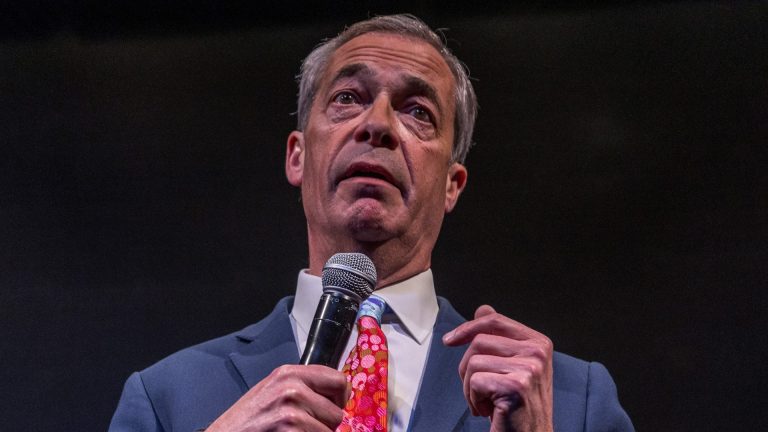The Brandenburg Gate, more than any other monument in Berlin, signifies the reunification of that city after its post-war division into East and West. So when the British monarch, Charles 111, posed with the German President, Frank-Walter Steinmeier, in its shadow this week, the message was clear: splits do not have to be permanent.
Given the costs that Brexit is inflicting on the UK economy, few can doubt the wisdom of the country trying to rebuild bridges with the EU. The chairman of the Office for Budget Responsibility, Richard Hughes, said last weekend that the OBR estimated that Brexit reduced the economy by around 4 per cent, a hit on the scale of the Ukraine War or Covid.
But whereas other economies have largely recovered from the pandemic, the UK continues to languish because Brexit keeps on inflicting its damage. The Centre for European Reform calculates that by June, it will have cost Britain a lost £40 billion in taxes.
Faced with such figures, any sensible government might be seeking a speedy rapprochement with the EU. The surprisingly generous terms offered by the Commission to secure the Windsor Framework, aimed at easing the particular tensions Brexit caused for Northern Ireland, coupled with the glowing terms in which Rishi Sunak lauded the Single Market, offered some hope that reason might be prevailing.
But the PM’s position is ambivalent, to say the least. He is pressing ahead with the dreadful Retained EU Law Bill, a recipe for chaos and confusion which is already having a negative effect on trade. A paper just published by Giulia Gentile, a fellow at the LSE Law School, concludes that “The impression that the Bill gives is to be ideological more than pragmatic and reasonable.”
A crazy search to find every bit of EU-originated law and decide whether to keep it, reform it or, if it is still there at the end of the year, burn it, is simply irresponsible when as many as 4,000 pieces of legislation may be involved. The ideology, though, is clear: this Bill would make it much more difficult, if not nigh on impossible, for the UK to rejoin the Single Market.
This week, While the King was schmoozing in Germany, Sunak dealt another blow to UK/EU relations, getting stingy over payments should the UK be allowed to rejoin the Horizon programme. British scientists have been desperate to resume their full role in the cross-border research scheme.
Only days ago, 18 research institutes signed a letter saying full membership was ‘essential’ after it was put on hold over the Northern Ireland situation. But, just when discussions were nearing a close, it seems that Sunak is cavilling over the cost, estimated at around £10 billion for the programme’s remaining years.
The terms were established under the Trade and Cooperation Agreement, so seeking to renege on them now will constitute an untimely reminder to the EU of what a difficult colleague the UK had been. It is the sort of behaviour which might win plaudits from the Daily Mail but will have driven most scientists to despair.
And it leaves one wondering whether Sunak, who espoused the Brexit cause, genuinely did support it and was not merely influenced by the fact that his Richmond constituency favoured leaving.
Before the historic vote, he assured his constituency that, “On balance, our nation will become freer, fairer and more prosperous outside the EU”. Addressing the farmers who constitute an important part of his Richmond electorate, he made much of the fact that coming out of the EU “will immediately save £20 billion”, which would more than make up for the £2.5 billion a year that British farmers were then enjoying from the Common Agricultural Policy.
Well, those ‘savings’ have evaporated and farmers are struggling. Not only are they having to cope with massive increases in costs, from energy to fertilisers and animal foodstuffs but they fear being undercut by produce coming into the UK under the trade deals such as that with Australia.
Those transformative trade deals that we were promised have failed to materialise. Yet the Brexit buffoons continue to ignore the facts.
On Wednesday, the Daily Mail was trumpeting that the UK was on the brink of concluding a deal to give it membership of the Comprehensive and Progressive Agreement for Trans-Pacific Partnership. This would bring access to a major trade bloc with 11 other nations. Trade secretary Kemi Badenoch had, it said, “been locked in talks for months”. Shanker Singham, who was once dubbed “the brains of Brexit” and was a hugely influential advisor to the Tory right, claimed that “UK accession to the CPTPP would be a seismic geo-economic event”.
In fact, the UK already has trade deals with nine of the 11 countries in CPTPP, only missing Brunei and Malaysia. But the Brexiteers are increasingly desperate for positive news – and it is very hard to find!












